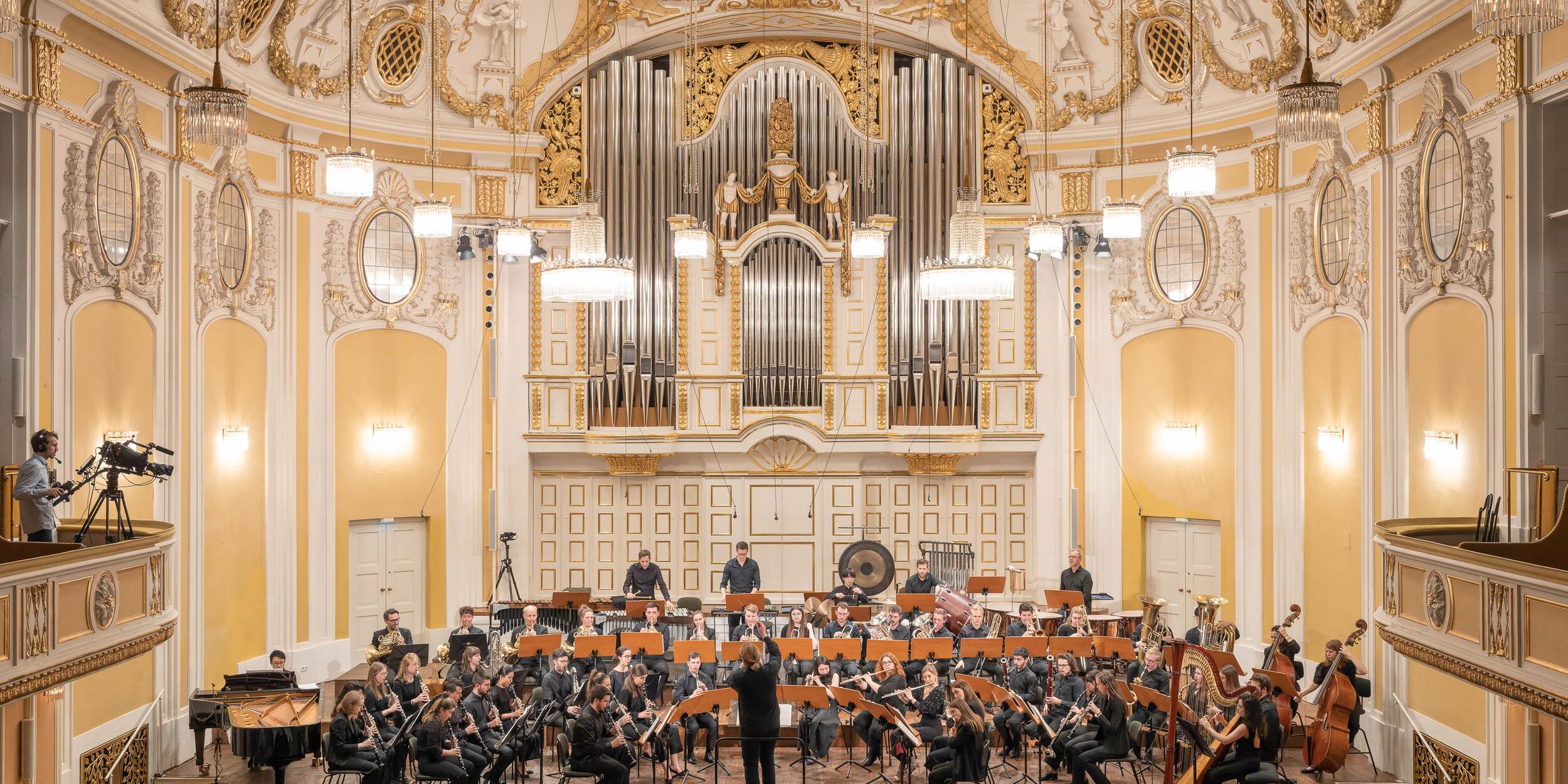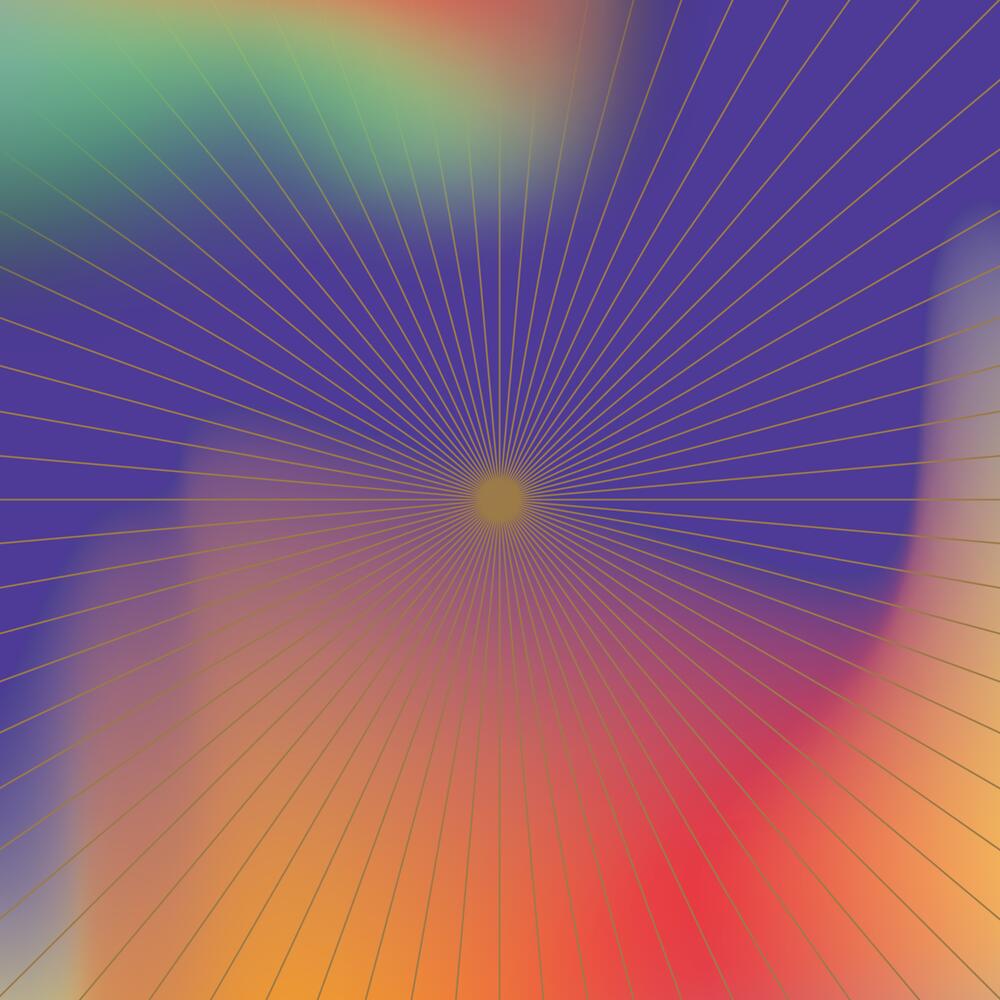Future music from five centuries

With the first edition of the new interdisciplinary ORA Early Music Festival, the Mozarteum University is celebrating a special premiere. Over three days, early music, contemporary musical language and improvisation come together in numerous concerts and sound performances.
"ORA - the now, the moment of presence and infinity at the same time becomes an immediate experience in the music. ORA is more than just an insider tip! ORA is the present, is the Mozarteum, is original sound," says Rector Elisabeth Gutjahr in her welcoming message to the festival programme, which has been created under the artistic direction of Dorothee Oberlinger (recorder), Vittorio Ghielmi (viola da gamba), Florian Birsak (harpsichord) and Simone Fontanelli (composition and conducting).
The festival will kick off on Johann Sebastian Bach's birthday on 21 March in the Great Hall of the Mozarteum Foundation - with music by the master himself, paired with contemporary compositions based on works by Johann Sebastian Bach. Bach's Musical Offering BWV 1079, which will be performed in the first concert of the evening, continues to inspire musical artists to reinterpret, re-create and re-create. Bach's unrivalled mastery in the field of polyphony is evident in the canons and the two ricercare. In the trio sonata, this is finally united with the common musical language of the late Baroque. Bach unquestionably marks the high point of this genre in music history. As a counterpoint, works from the 20th and 21st centuries by Isang Yun and Wen-Chen Wei, as well as other works by Bach, will be performed.
Bach's most important organ works - also a milestone in musical literature - will be performed in the second concert of the evening "Bach alive". However, not on the Great Organ of the Mozarteum Foundation, but in an arrangement played by the Mozarteum University Wind Philharmonic Orchestra under the direction of Andreas Martin Hofmeir. Instead of pipes controlled by the console, all classical wind instruments can be heard: "Conducting Bach on a quasi-living organ is a dream for me, and at the same time a great challenge: how do we deal with our flexibility in terms of articulation, dynamics and sound design? How do we do justice to the works that Bach wrote for his very own instrument, the organ? And to what extent can we utilise the possibilities that the many different musicians are able to offer? It will be a wonderful experiment!"
This will be accompanied by the grand fantasia "Bachseits" by Johannes Stert and the eagerly awaited premiere of a composition by the Russian-Ukrainian composer Vladimir Tarnopolski on the Bach chorale "Das alte Jahr vergangen ist". Tarnopolski currently lives in exile in Munich: "Vladimir Tarnopolski's Das alte Jahr vergangen ist: 2022 is subtitled Variations on a chorale by J.S. Bach. The particular content of this chorale by J.S. Bach in combination with the year 2022 brings us into a deep sense of bitterness about what has happened in Ukraine and the composer's enormous feeling of helplessness in the face of events. In such a situation, the composer, the artist, can only write his music, which may resonate in the hearts of the listeners and express all the grief. The combination of old and modern instruments in a single ensemble and the strong expressive effect of this piece make this world premiere particularly relevant and unique," summarises conductor Simone Fontanelli.
On Friday, 22 March, the Department of Early Music's traditional Baroque Night is on the programme, which will be dedicated to the "stile moderno" in 2024. In five concerts, revolutionary and groundbreaking works of early music at the crossroads of eras and contemporary compositions for instruments of the original sound will compete with each other. "In summer 2023, a special composition laboratory for early instruments was offered at the renowned Accademia Chigiana in Siena, Italy, as part of the Baroque Summer Academy organised by the Department of Early Music of the Mozarteum University in cooperation with the Accademia Chigiana. This special laboratory - a real novelty among summer courses - offered young composers the opportunity to work on their own compositions and come into contact with the poetic and aesthetic world of ancient instruments and their sound. The course was extremely successful! As part of the Baroque Night 2024, we will have the opportunity to hear three of these compositions, all for viola da gamba ensemble, composed by Andreas Bäuml, Luisa Antoni and Chiara Mallozzi," says Simone Fontanelli. In keeping with the Passion period, "Membra Jesu nostri", a cycle of seven mystical Easter cantatas by Dietrich Buxtehude, will also be performed under the direction of Vittorio Ghielmi and Jörn Andresen - the highlight of German cantata compositions of the 17th century.
Finally, Terry Riley's "In C" will meet the "Barbaric Beauty" of Eastern European folk music in the Long Night in the foyer of the Mozarteum University on Saturday (23 March). Selected students from the fields of folk music, drama, dance, instrumental studies and singing will perform the famous aleatoric composition by American composer Terry Riley - staged by German director Ludger Engels and under the musical direction of Dorothee Oberlinger. The Czech violinist Stanislav Palúch and the Moldavian cymbalom player Marcel Comendant join them in a kind of jam session as a parenthesis, finding in Georg Philipp Telemann's music the "barbaric beauty" of Slavic and Czech musical tradition that he so famously described. "In a synergetic bridge-building process, ORA combines old and new(er) music - original sound meets future music from five centuries, improvisation, world premieres and musical spatial installations," says Dorothee Oberlinger.
The preview of the Mozarteum University's new festival format invites the audience on a journey through the centuries. Early music reinvents itself, encounters contemporary music and unusual concepts. New paths are conquered here to celebrate future music from five centuries. The ORA Early Music Festival also sees itself as the prelude to the establishment of a larger original sound festival format, in which, in addition to performative and interdisciplinary aspects, the historical venues and the musical tradition of the baroque city of Salzburg will be increasingly focussed on in the future.
